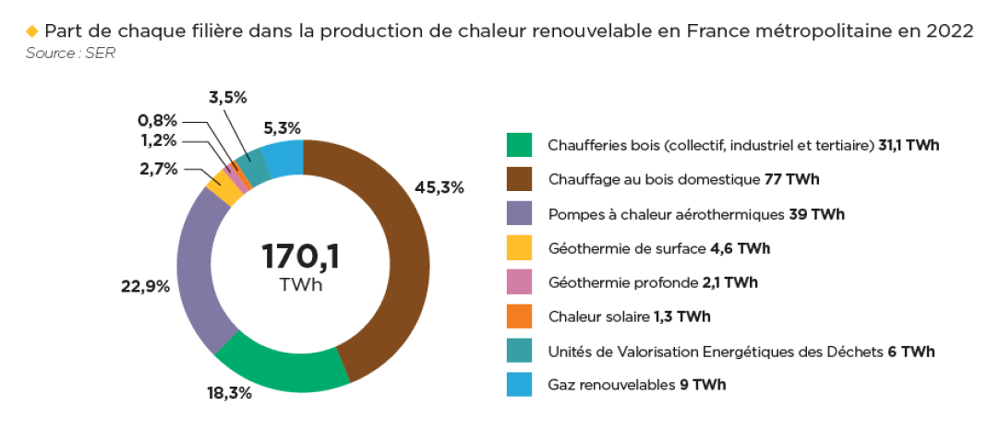In a context of climate change and energy crisis, the government has made a bold decision by placing renewable energies at the heart of its strategy. This strategic direction, although surprising to some, comes with a significant budget increase, raising curiosity and questions. Why this emphasis on green energies and what economic, environmental, and societal stakes lie behind this desire for transformation? By delving into the behind-the-scenes of this decision, we will uncover the true reasons that drive our leaders to bet on a sustainable energy future and the secrets that explain this unexpected budget increase.
The New Government Strategy for Renewable Energies

The government has decided to significantly increase this year’s budget for renewable energy auctions. This decision follows numerous support requests from the industry.
The Secretary of State for Energy, Ed Miliband, will announce on Wednesday that the budget will be raised to £1.5 billion, an increase of £500 million compared to the previous year. The majority of this funding will be allocated to the development of offshore wind energy, which the Labour government aims to quadruple by 2030.
The Reaction of the Renewable Energy Industry
The increase in this budget has been widely welcomed by the renewable energy industry. However, some warn that without further changes, new projects may not be delivered on time. It is essential to provide additional support to ensure that projects receive the necessary permits and overcome logistical and financial challenges.
Annual Auctions for Energy Projects
Every year, the government holds an auction to encourage companies to bid to develop renewable energy projects to supply the UK electricity grid. This system is designed to ensure that projects receive a guaranteed price – known as the reference price – from the government for the electricity they will produce, which should encourage companies to invest with confidence.
- In 2022, no developer submitted bids for offshore wind contracts, deeming the proposed price too low to make projects viable.
- In response, the former Conservative government significantly raised the reference price for offshore wind projects in November.
Ed Miliband stated that the Labour Party’s commitment to maintaining this higher price and increasing the budget available for projects “will restore the UK as a global leader in green technologies.”
Challenges and Opportunities for Renewable Energy Expansion
According to Claire Coutinho, shadow energy secretary, the government’s plans are untested and unfunded. She specifically criticizes the Labour Party for their strategy that increases renewable energies while reducing investments in gas, our only current support when the sun does not shine and the wind does not blow.
Esin Serin, a policy researcher at the Grantham Research Institute at the London School of Economics, described this budget increase as “necessary and welcome.” However, she noted that this year’s auction is likely to deliver only 10 GW of the 40 GW needed for the Labour Party to reach its 2030 target.
Supplementary Measures to Support Renewable Projects
This announcement is part of a series of measures taken by the Labour government since the elections to boost renewable energy, including removing planning restrictions for onshore wind and partnering with the Crown Estate to develop new offshore wind projects.
Dr. Rahmat Poudineh from the Oxford Institute for Energy Studies agreed that a higher budget would attract more bids, but warned that developers still face challenges, including unexpected cost increases and delays in connecting their projects to the grid.
A Step Towards Energy Independence and Emission Reduction
The government aims to see rapid growth in renewable energy projects to reduce greenhouse gas emissions caused by fossil fuel use. It also hopes to increase energy independence to protect consumers from fluctuations in the international energy market.
Gas prices reached record levels in 2022 following the Russian invasion of Ukraine, which disrupted supply. If the price guaranteed by the government to renewable energy developers proves to be significantly higher than market prices in 2030, taxpayers could lose money. However, Jess Ralston, head of energy at the Energy & Climate Intelligence Unit, believes it is more likely that the program will be financially balanced.
She adds that in the event of another gas crisis, the wind energy secured from this auction could save £30 to £40 per year on each household’s energy bill in the future.
Les énergies renouvelables ne seraient pas propres et pas… renouvelables ?! ?
— Greenpeace France (@greenpeacefr) June 12, 2024
Absolument TOUS les scénarios de transition énergétique reposent sur le développement significatif et rapide de ces énergies, et notamment de l’éolien.
La raison est très simple… [2/8]
Articles similaires
Thank you!
We will contact you soon.














